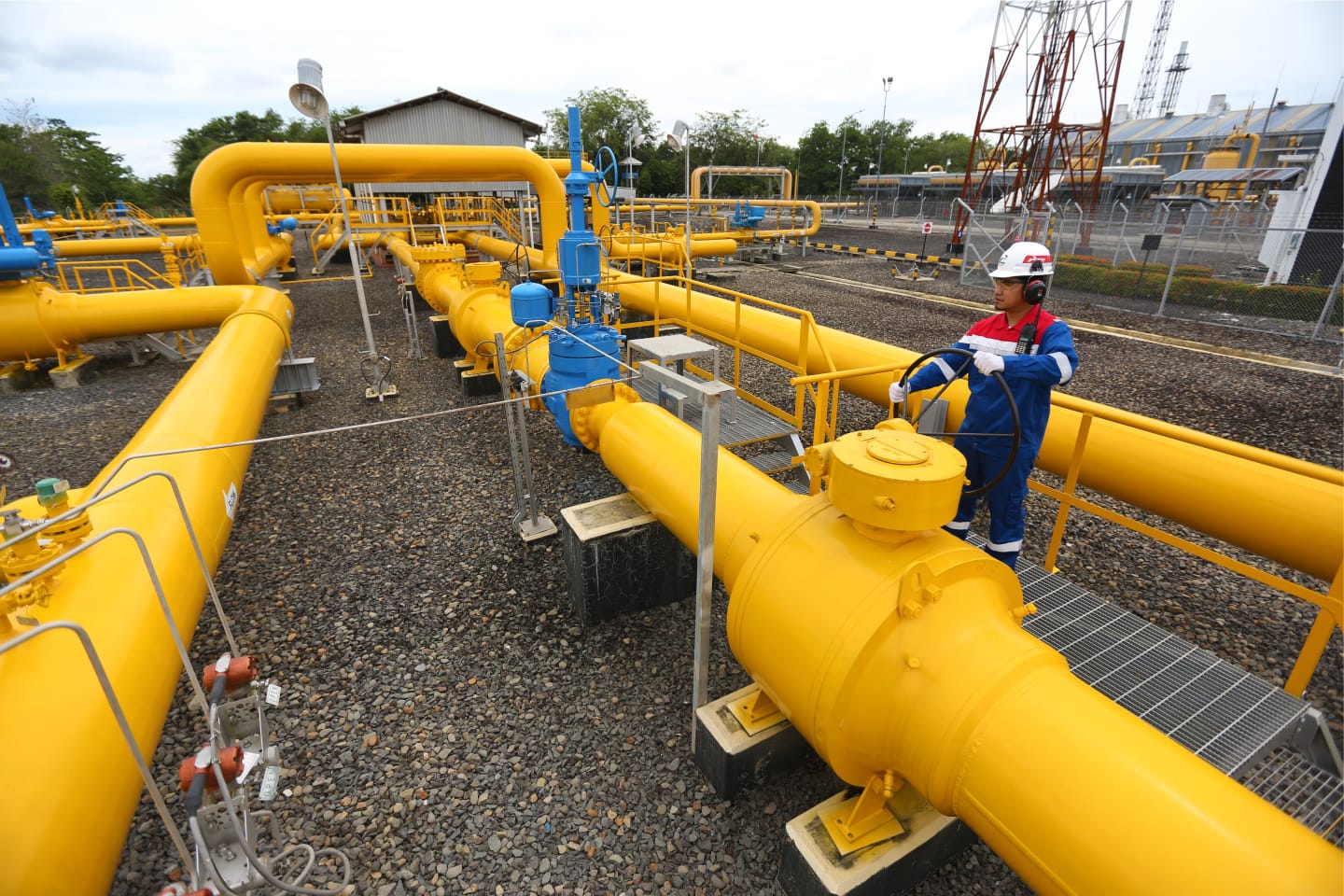Kembali Ke Beranda
1 Mar 2024
Three Priority Strategies of PGN to Ensure Business Sustainability and Enhance Domestic Gas Utilization
Jakarta, March 1, 2024 – PT Perusahaan Gas Negara Tbk (PGN), Subholding Gas of PT Pertamina (Persero), is implementing a series of strategic initiatives to ensure the long-term sustainability of the company’s business while supporting the government's efforts to optimize domestic energy resources through the utilization of natural gas.
PGN’s President Director, Arief Setiawan Handoko, said that as a company that has built and manages the largest natural gas infrastructure in Indonesia, PGN has taken a dominant role in making natural gas one of the primary energy sources, especially during Indonesia’s energy transition period. PGN plays this role by distributing natural gas from various supply sources across Indonesia to multiple consumer segments in Sumatera, Java, Kalimantan, Sulawesi, and Papua.
In addition to serving the needs of strategic sectors such as electricity, fertilizers, and petrochemicals, PGN's natural gas also flows to thousands of industries, ranging from SMEs to large-scale industries. PGN is also a key player in developing the natural gas network (jargas) for households, aimed at reducing reliance on LPG.
“PGN has three priority strategies that will be the key to strengthening the company’s business fundamentals in the future. Grow, Adapt, & Step out (GAS) is PGN’s strategy in facing the dynamic energy business environment. As part of a state-owned enterprise, PGN will continue to commit to supporting the efforts to increase the utilization of natural gas as a domestic energy source that brings many benefits to our nation,” explained Arief, on Friday (1/3).
Arief explained that the first priority strategy is Grow – PGN will continue to strengthen and grow the existing business services to ensure that each service to customers is excellent and continues to drive positive company performance. Some initiatives that PGN has done and will continue to do include building several gas infrastructures such as the gas distribution from Jambaran Tiung Biru (JTB) to Petrokimia Gresik, the WNTS-Pemping pipeline project to optimize gas from West Natuna, and the Tuban Refinery project, which is part of a national strategic project.
“PGN aims to realize the long-term growth target for national gas infrastructure with the addition of 11,000 km by 2034. PGN’s participation in these strategic projects will drive large-scale gas consumption growth. Meanwhile, with many large companies switching to gas, PGN is also helping the energy transition process towards net-zero emissions. These two factors are fundamental to PGN’s future,” said Arief.
As part of strengthening its business, PGN is also expanding the natural gas network (jargas) for households. In 2024, PGN targets the addition of 200,000 household connections. The company is also in the process of developing a jargas project in the National Capital City (IKN), targeting 1 million household connections within the next year.
Arief also mentioned that PGN’s business supporting the upstream oil and gas sector has proven to have significant business impact. One of the projects is the Rokan oil pipeline. This year, PGN is also expected to participate in building the Cikampek-Plumpang pipeline infrastructure. This strategic role is expected to improve PGN’s overall performance.
The second priority strategy is Adapt, or being adaptive to various business changes and continuously optimizing every opportunity available in the market. PGN’s initiatives in this area include developing the LNG business as one of the sources of natural gas supply. To support the strengthening of its LNG business, PGN is also planning to build LNG infrastructure domestically. The development of LNG business is crucial to strengthening domestic gas supply resilience, especially since pipeline gas is in a natural decline, making LNG a primary option to maintain service continuity and become a source of new performance growth. PGN has also entered the international LNG trading era.
“We will continue to adapt to the changing business environment, both domestically and globally. LNG will be one of the company’s focuses, as in the future, LNG will be the primary source of domestic gas. That’s why we continue to socialize with our customers regarding the potential changes in the gas supply portfolio, which will inevitably affect the entire natural gas service value chain,” said Arief.
The third priority strategy of PGN is Step Out, or starting to explore new business segments related to natural gas. One of the innovations PGN is pursuing is entering the chemicals business, such as petrochemical plants and processing gas into basic chemicals such as ammonia and methanol.
“Gas to chemicals is very strategic for PGN to begin at the initial phase, with participation in petrochemical plants. There is significant potential in this sector, so we expect it to increase the utilization of natural gas in substantial volumes and optimize the use of domestic gas,” he said.
PGN also plans to build infrastructure and commercialize biomethane as a renewable gas derived from further processing of biogas. This plan is also part of PGN’s commitment to supporting the achievement of national energy mix targets. The National Energy General Plan (RUEN) sets the target for the share of gas in Indonesia’s energy mix to increase from 22% in 2030 to 24% in 2050.
Kembali Ke Beranda











